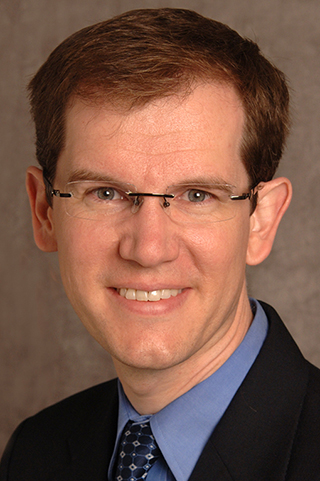Coping with an Autism Diagnosis
An autism expert offers tips to parents facing the challenges of raising a child with autism spectrum disorder.

With autism spectrum disorder (ASD) diagnoses on the rise, more parents are experiencing the challenges that come with raising a child who may struggle with communicating, interacting socially, or repetitive behaviors.
One in 44 children in the United States is diagnosed with ASD, about a 240 percent increase since 2000, according to the Centers for Disease Control and Prevention (CDC). Boys are four times more likely to be diagnosed than girls.
“Most of the data suggests that the increase in autism diagnoses is due to improved screenings and assessments, as opposed to a true increase in the rate of autism in the population,” says Dr. Jeremy Veenstra-VanderWeele, the director of the Division of Child & Adolescent Psychiatry at NewYork-Presbyterian Morgan Stanley Children’s Hospital, New York State Psychiatric Institute, and Columbia University, and a national authority on ASD.

Dr. Jeremy Veenstra-VanderWeele
ASD varies widely in type and severity. “There are people with autism who function very well, and there are people with autism who are unable to speak, and everything in between,” says Dr. Veenstra-VanderWeele.
“It’s natural for parents to feel adrift and afraid when learning their child has ASD. However, there is reason to be hopeful: Researchers are making rapid gains, and we are seeing better outcomes through high-quality, early intervention,” he says. “Also, research is moving quickly, and experts are understanding much more than they did 20 years ago.”
Here, Dr. Veenstra-VanderWeele offers guidance and tips on coping with a diagnosis, and how to be your child’s best advocate.
- Have hope. Behavioral and educational interventions can make a big difference. Further, autism research is moving quickly, providing us new opportunities to help people with ASD.
- Remember that your child is an individual. Your child is first and foremost his or her own unique person, then a child with strengths and difficulties, and only then a child with ASD. Receiving a diagnosis does not change the child you know and love.
- Build a strong support system. Find people you can trust to support you as an individual, and then to support you as a parent of a child with autism. Acknowledge that this isn’t easy and give yourself credit for what you do.
- Find credible sources and resources in your community. You will hear many contradictory and unfounded pieces of information. Stand up for what you think are the needs of your child. Find professionals whom you trust and resources in which you have faith. Don’t be afraid to ask for help. Other parents can be important sources of information, but every child with ASD is different.
- Enjoy each other. Do things that you and your child can enjoy together. While opportunities for learning are important, shared enjoyment is also important in a family.
- Set goals. Set small, reasonable goals for your child and figure out how to accomplish them. Have ideas for next steps that aren’t miles down the road.
- Make time for your partner. Set aside some time, even just a few minutes, to focus on each other and not the child. Listen to each other’s needs and perspectives as you consider what you will do for your child.
- Have reasonable expectations for your child’s behavior. Do not let your child do things that you would not let another child of the same age do, such as biting people or climbing on counters. Do not punish, but interrupt quickly, be firm, and redirect, offering a distraction when necessary.
- Build on your child and your family’s strengths. Help your child find things she or he loves and use that passion to build experience and/or skills. If your family is passionate about something like music, sports, or travel, find a niche for your child in that interest.
For more information about ASD resources at NewYork-Presbyterian, visit the Center for Autism and the Developing Brain.
Jeremy Veenstra-VanderWeele, M.D., is the director of the Division of Child & Adolescent Psychiatry at NewYork-Presbyterian Morgan Stanley Children’s Hospital, New York State Psychiatric Institute, and Columbia University. He is also the Suzanne Crosby Murphy Professor of Developmental Neuropsychiatry at Columbia University Vagelos College of Physicians and Surgeons and a psychiatrist at the Center for Autism and the Developing Brain, a collaborative program between NewYork-Presbyterian, Weill Cornell Medicine, and Columbia University Vagelos College of Physicians and Surgeons, in partnership with NEXT for AUTISM.
